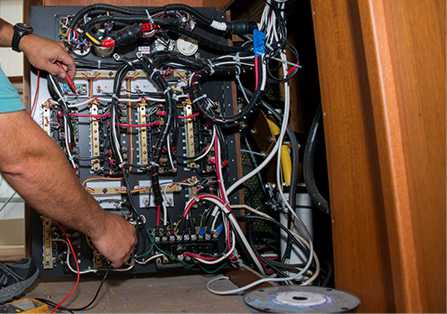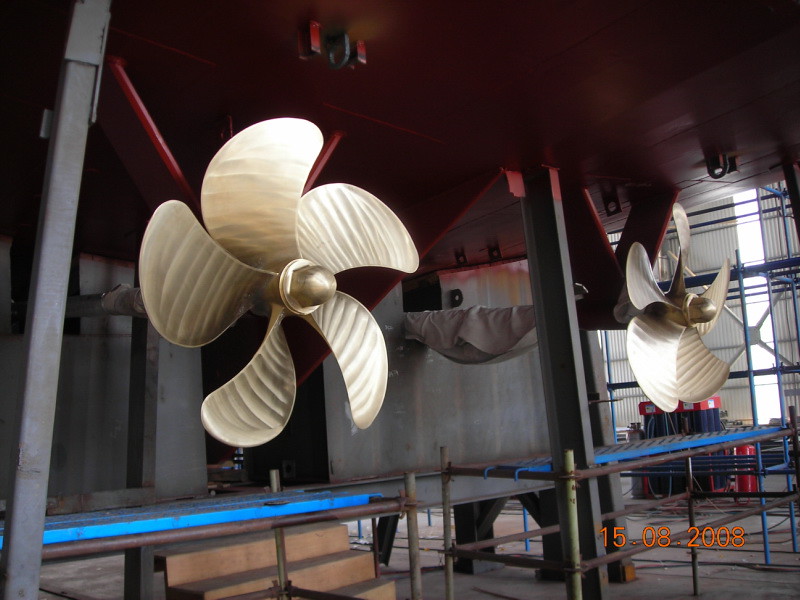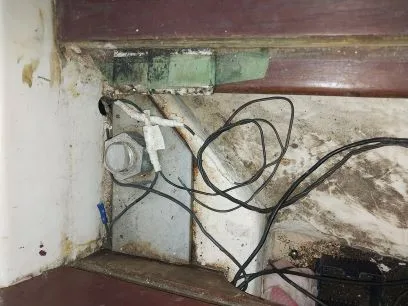Marine surveys are an essential aspect of maritime operations, serving as a comprehensive assessment of vessels’ conditions and ensuring safety standards are met. Whether you’re purchasing a boat, insuring it, or simply seeking peace of mind regarding its seaworthiness, understanding the scope, process and details of marine surveys is crucial. In this post, I will answer seven most common questions about marine surveys, such as the scope, processes, costs, and more.
1. What is a marine survey?

In a nutshell, A marine survey is an in-depth/comprehensive inspection of a vessel, conducted by a qualified* marine surveyor. It involves assessing various aspects of the boat, including its structure, machinery, electrical and domestic systems, safety equipment, and overall condition. The surveyor provides a comprehensive report detailing any deficiencies, recommendations for repairs or maintenance, and evaluating the vessel’s value.
2. Why do I need a marine survey?
There are several reasons why obtaining a marine survey is essential. Firstly, it ensures safety by identifying any potential hazards or deficiencies that could compromise the seaworthiness of the vessel. Additionally, marine surveys are often required by insurers and financial institutions when purchasing or financing a boat. The survey report serves as a valuable tool for negotiating prices when you are purchasing a boat or yacht. Determining the need for repairs, and making informed decisions about the investment in the vessel will provide significant value before you buy.
3. What do you look for in a marine survey?

During a marine survey, the surveyor assesses various aspects of the vessel, including its hull integrity, propulsion and steering systems, electrical and plumbing systems, navigation equipment, safety features, and compliance with regulatory standards. The surveyor also inspect for signs of corrosion, damage, or wear and tear that may affect the vessel’s performance or safety. Additionally, (depending on the scope of the survey) the surveyor may conduct sea trials to evaluate the vessel’s handling and performance underway.
4. What is the process of a marine survey?
The process of a marine survey typically begins with an initial consultation between the surveyor and the vessel owner or buyer to discuss the scope of the survey and any specific concerns. The surveyor then conducts a thorough inspection of the vessel, both onshore and, if applicable, in the water.

This inspection may include visual examinations, non-destructive testing, and the use of specialized equipment to assess various components of the vessel. After completing the inspection, the surveyor prepares a detailed report outlining their findings, recommendations, and conclusions. In Blue Matter we also offer a detailed briefing after the survey report delivered to the client.
5. What are the types of marine surveys?

There are several types of marine surveys, each serving a specific purpose and tailored to the needs of the vessel owner or buyer. Some common types of marine surveys include pre-purchase surveys, which are conducted before buying a boat to assess its condition and value. Insurance surveys are required by insurers to determine the vessel’s insurability and risk factors.
Condition surveys are conducted for routine maintenance or to assess the vessel’s overall condition. Additionally, specialized surveys may be conducted for specific purposes, such as damage assessments or compliance with regulatory standards.
6. How much does a marine survey cost?
The cost of a marine survey can vary depending on various factors, including the size and type of vessel, its location, the complexity of the survey, and the experience and qualifications of the surveyor. On average, marine surveys can cost anywhere from $15/foot to $30/foot. It’s essential to obtain sample reports, references and confirmation of credentials besides the quotes when you are shopping for a marine survey. And discuss the scope of the survey to ensure you’re getting a comprehensive assessment at a fair price.

7. How to prepare for a marine survey?

Preparing for a marine survey involves several steps to ensure a smooth and thorough inspection process. First, gather all relevant documentation, including registration papers, maintenance records, and any previous survey reports. Ensure the vessel is clean and accessible for inspection, both inside and out. Make any necessary repairs or maintenance beforehand to address any known issues and demonstrate the vessel’s upkeep.
Finally, be prepared to accompany the surveyor during the inspection to provide access to all areas of the vessel and address any questions or concerns they may have.
Conclusion:
Marine surveys are an essential aspect of boat ownership, providing valuable insights into the condition, safety, and value of a vessel. By understanding the purpose, process, and significance of marine surveys, boat owners and buyers can make informed decisions and ensure the seaworthiness and longevity of their vessels. Whether purchasing a boat, seeking insurance coverage, or maintaining an existing vessel, investing in a comprehensive marine survey is a crucial step in navigating the waters safely and confidently.
